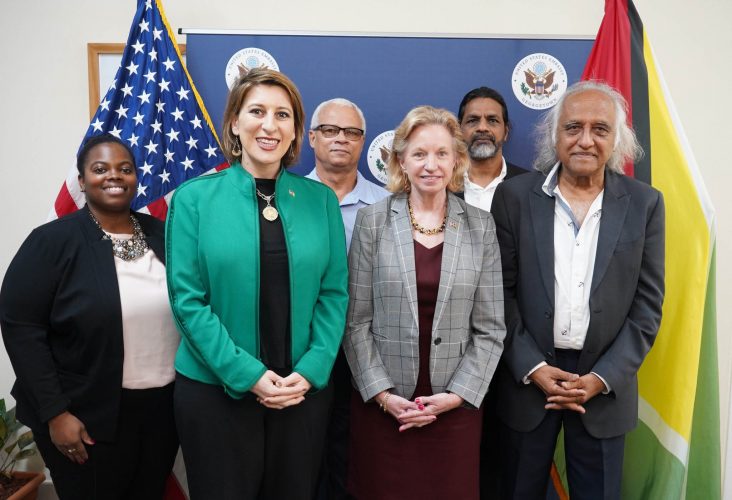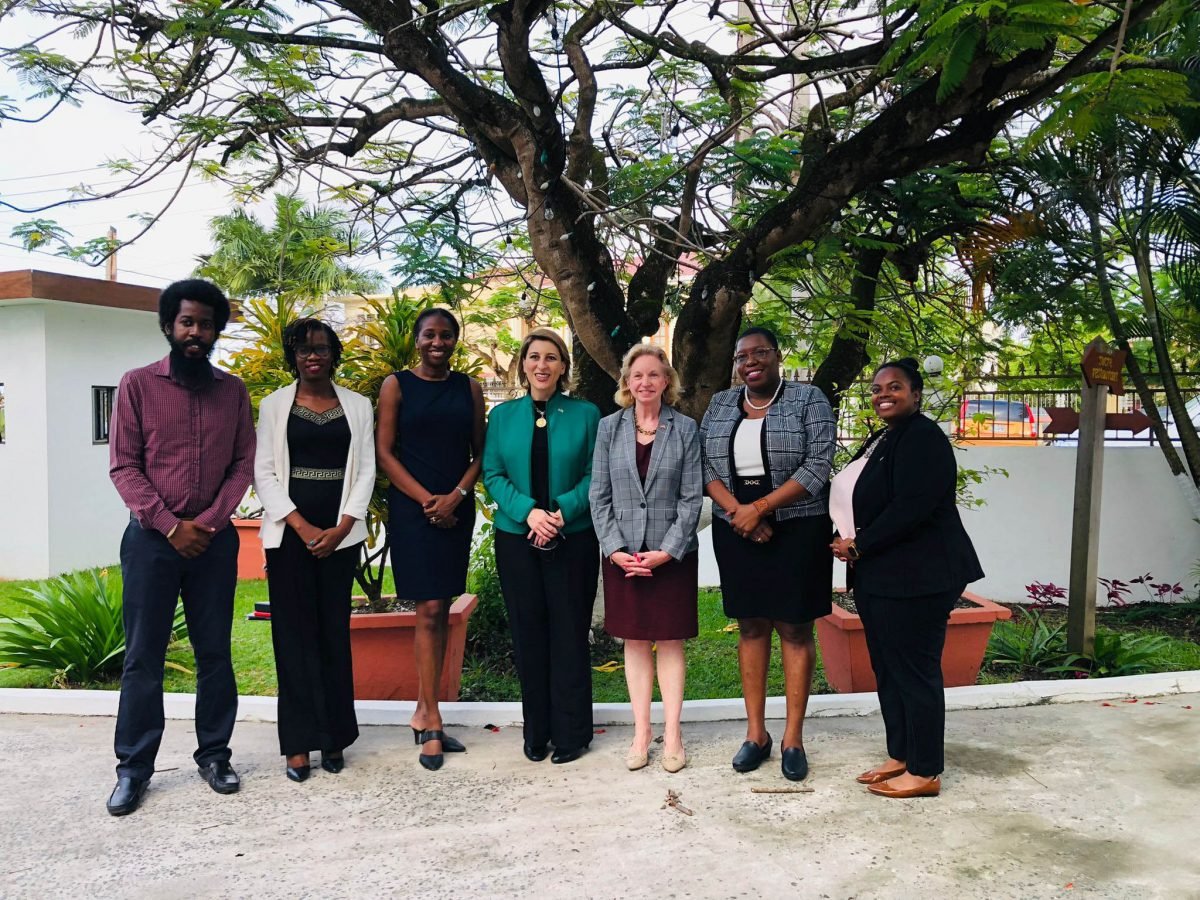United States Deputy Assistant Secretary for Caribbean Affairs and Haiti Barbara Feinstein on Friday met with civil society group Article 13 and a number of issues ranging from the “overwhelming powers” of the President to the government’s recent attack on civil society bodies were raised by the group.
In a statement, the group said that the meeting was a result of an invitation from the United States of America Embassy in Guyana. The engagement with Feinstein and US Ambassador to Guyana Sarah-Ann Lynch lasted for one hour and Article 13 was represented by Yog Mahadeo, Jonathan Yearwood and Christopher Ram.
Article 13 said that the discussions were wide-ranging and covered the origin, ideas and activities of the body since its first announcement in September 2021.
“We noted that we took our inspiration from Article 13 of the Constitution of Guyana providing through an inclusionary democracy the participation of citizens and their organisations in the management and decision-making processes of the State, with particular emphasis on those areas of decision-making that directly affect their well-being. That right is now elevated and protected among the Fundamental Rights and Freedoms of the Individual protected under Title 1 of the Constitution,” the group reported.
Article 13 said it raised a plethora of issues that it deemed important and require urgent attention. Providing a list of some of those issues, Article 13 said that the threats to democracy including the attempts to overturn the results of the March 2020 elections, the long-ranging powers of the president, the non-appointment of a number of Constitutional Commissions and statutory bodies, constitutional reform, winner takes all politics, electoral reform – including the restrictive provision of section 11B of the Representation of the People Act and non-compliance with Election Expenses Accountability, and government’s attack on civil society were all raised.
“We also discussed the Access to Information Act and its failure to live up to expectations as one of the pillars of Article 146 of the Constitution of Guyana; corruption; and the need for Civil Society to engage the government, politicians and political parties, and the rest of society in dialogue to enhance our democracy and society,” the statement added.

Article 13 said that it recognises that Guyana’s issues require Guyanese solutions and attention, however, it saw the opportunity to meet with Ambassador Lynch and Feinstein as a means of engagement. The group also said that at no point during the meeting did it seek any support from the US diplomats nor was any offered.
Feinstein arrived in Guyana on Thursday as part of a mission to further bilateral ties between Guyana and the US. According to the US Embassy, “Her visit underscores the continued importance the United States places on the U.S./Guyanese partnership.”
She has already met with Prime Minister Mark Phillips, who is performing the functions of President, and Vice-President Bharrat Jagdeo. During her meeting with Jagdeo, Feinstein raised the issue of revamping the Carter-Price formula for the composing of the Guyana Elections Commission (GECOM) among a range of other issues.
Revamping the formula, which had been intended for use only in the 1992 general elections, has been cited as vital by a number of observer groups over the years. The recommendations in the main have called for de-politicising of the body via the appointment of competent members of civil society rather than politicians.
Feinstein also met with the leader of the PNCR Aubrey Norton, CARICOM Secretary-General Dr Carla Barnette, the Black Entrepreneurs Association and several other foreign diplomats.





